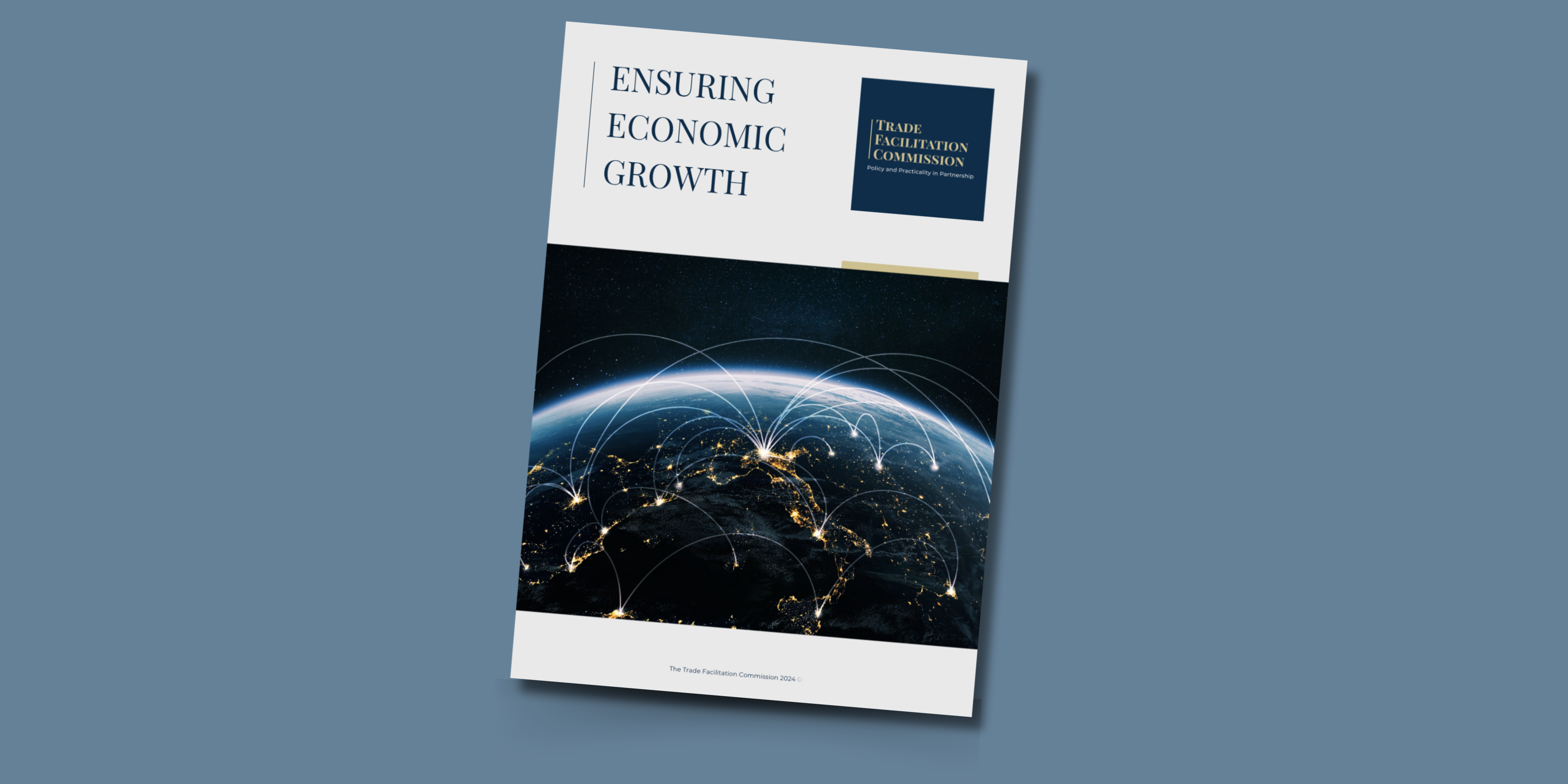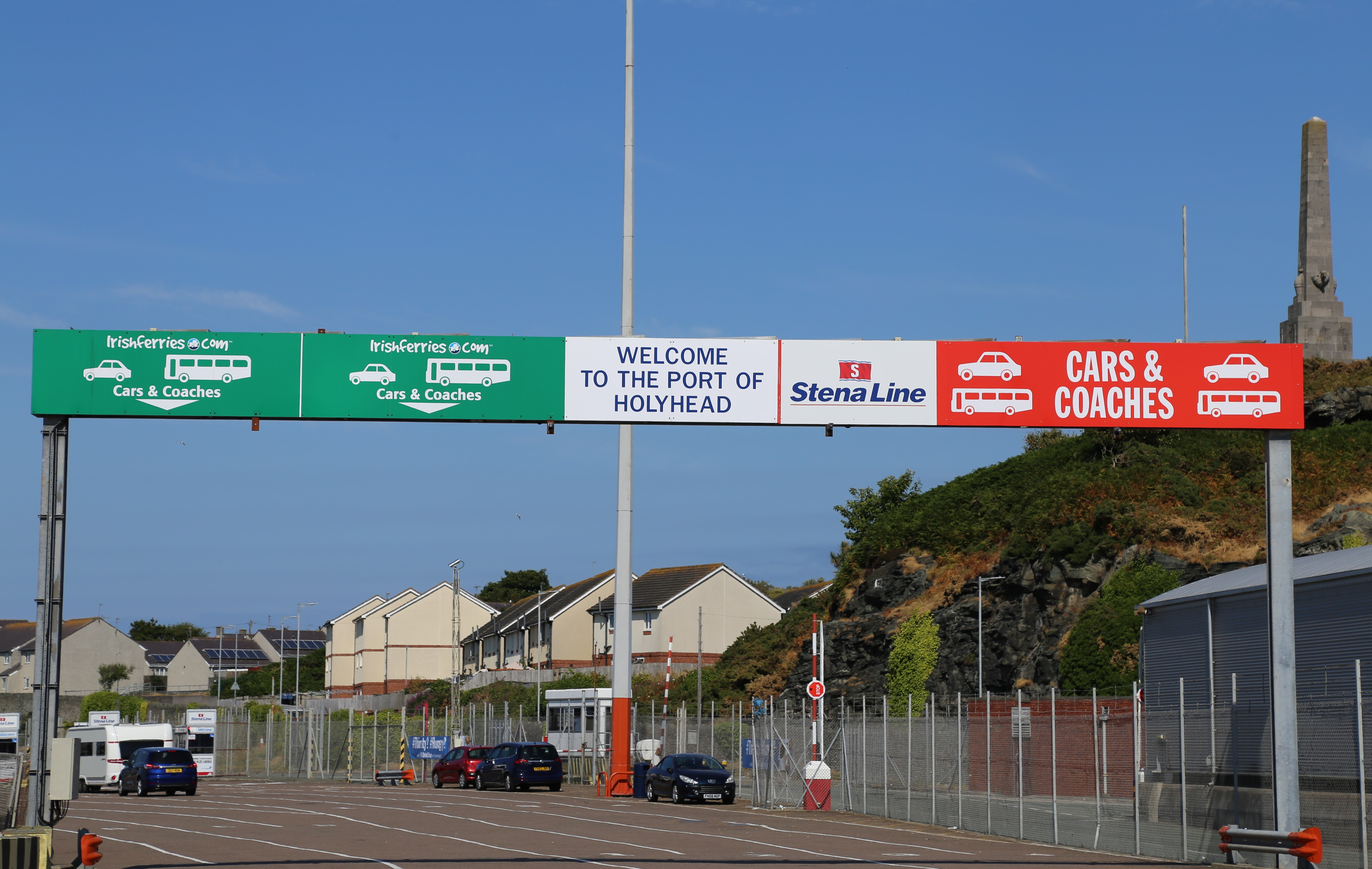Ensuring Economic Growth

The Trade Facilitation Commission released its report entitled ENSURING ECONOMIC GROWTH
Lord Agnew, chairman of the Trade Facilitation Commission (TFC) : "For the UK to thrive, we must streamline and digitise our trade processes, eliminating barriers to growth and strengthening our position as a global trading nation."
At an event held in the House of Lords on 5th November, The Trade Facilitation Commission released their detailed report. It announced a series of proposals aimed at boosting the UK’s economic growth by modernising and simplifying customs and border processes. As the government places economic growth at the forefront of its agenda, the TFC urges immediate action on trade facilitation to support UK businesses and increase GDP per capita.
Reflecting on the urgency of these reforms, Shanker Singham, trade expert and Co-vice Chair of the TFC, said
“Trade facilitation could unlock an increase of up to £3,500 in GDP per capita per UK household, bringing greater prosperity through more efficient border processes and reduced friction for businesses.” He further emphasised that enhancing the UK’s trade openness could fuel economic growth at a time when the country faces a pressing growth crisis.
Prime Minister's Economic Growth Mission
During a recent visit to Italy, the Prime Minister underscored the government’s dedication to fostering economic growth by removing impediments to progress and evaluating every decision by its potential to promote growth. This commitment is part of the government’s broader set of objectives, which include strengthening the economy, making Britain a clean energy superpower, and breaking down barriers to opportunity.
The TFC identified four reasons why trade facilitation is urgently needed:
- Economic Growth Crisis: The UK, along with other G7 countries, faces an ongoing economic growth challenge since the Global Financial Crisis.
- Declining EU Trade: Trade with the EU has decreased due to new trade processes, impacting UK businesses.
- Supply Chain Vulnerabilities: COVID-19 disruptions exposed weaknesses in the UK’s understanding of its supply chains.
- Increasing Complexity: With new regulations emerging, particularly from the EU, a more streamlined and manageable trade system is critical to future resilience.
Robert Hardy, a leading expert in customs and co-vice Chair of the TFC, stressed the importance of simplifying customs processes to help traders navigate this evolving environment said:
“Customs simplifications, including streamlined declaration procedures, are essential. Reducing administrative burdens and leveraging real-time supply chain data will allow traders to focus on growth instead of red tape.”
Trusted trader programs, which pre-qualify businesses that meet compliance standards for quicker border processing, are pivotal to the TFC's vision for trade facilitation.
Lars Karlsson, a trusted trader authority and TFC Commissioner, commented:
“We need to rethink trusted trader schemes in the UK, expanding them to ensure secure, streamlined processes across all government agencies. This will empower compliant traders and allow for faster, smoother border transactions, promoting both economic growth and security.”
The TFC recommends that the UK move toward implementing smart borders and digital trade corridors. This technology-driven approach would allow for automated monitoring, real-time container tracking, and pre-arrival data exchanges, thus minimising border delays and enhancing security.
Lord Agnew Chairman of TFC concluded, “Trade facilitation is not a luxury—it’s an essential driver of growth. By embracing digital tools, simplifying customs, and empowering trusted traders, we can transform the UK’s trade landscape and secure a prosperous future for businesses and people alike.”
To access a digital version of the full report: www.facilitation.trade/unlocking-uk-trade-potential


